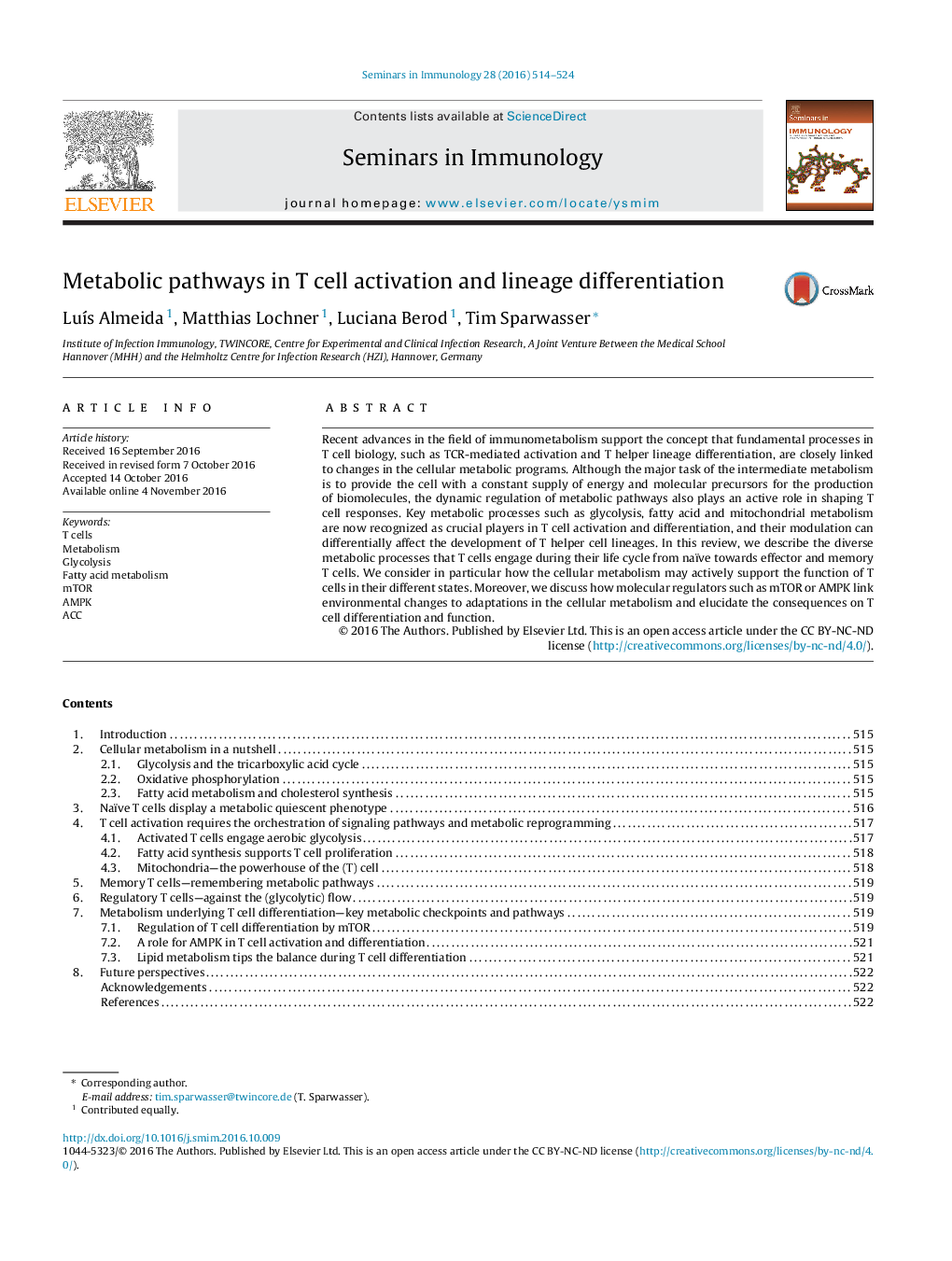| Article ID | Journal | Published Year | Pages | File Type |
|---|---|---|---|---|
| 5670395 | Seminars in Immunology | 2016 | 11 Pages |
â¢T cells adjust metabolic pathways during their life cycle according to their needs.â¢TCR activation is linked to metabolic reprogramming.â¢Cellular metabolic regulators shape T cell responses.â¢Manipulation of metabolic pathways can critically influence T cell activation and differentiation.â¢Fatty acid metabolism controls the balance between an effector and a regulatory phenotype.
Recent advances in the field of immunometabolism support the concept that fundamental processes in T cell biology, such as TCR-mediated activation and T helper lineage differentiation, are closely linked to changes in the cellular metabolic programs. Although the major task of the intermediate metabolism is to provide the cell with a constant supply of energy and molecular precursors for the production of biomolecules, the dynamic regulation of metabolic pathways also plays an active role in shaping T cell responses. Key metabolic processes such as glycolysis, fatty acid and mitochondrial metabolism are now recognized as crucial players in T cell activation and differentiation, and their modulation can differentially affect the development of T helper cell lineages. In this review, we describe the diverse metabolic processes that T cells engage during their life cycle from naïve towards effector and memory T cells. We consider in particular how the cellular metabolism may actively support the function of T cells in their different states. Moreover, we discuss how molecular regulators such as mTOR or AMPK link environmental changes to adaptations in the cellular metabolism and elucidate the consequences on T cell differentiation and function.
